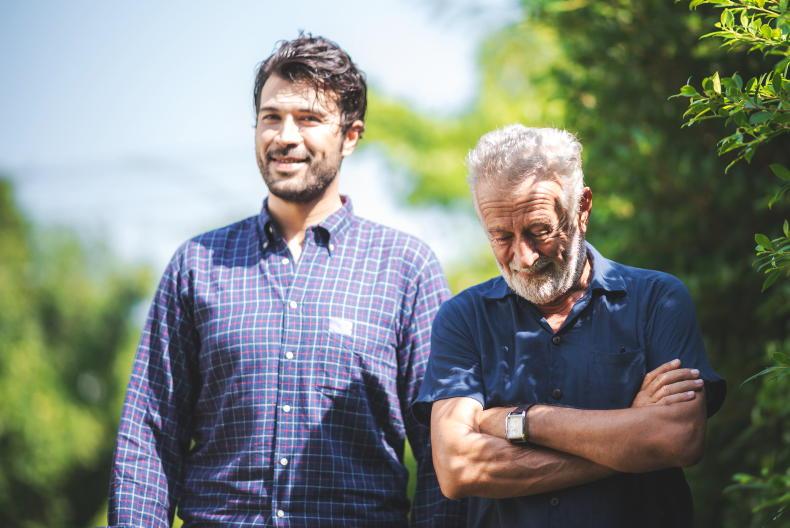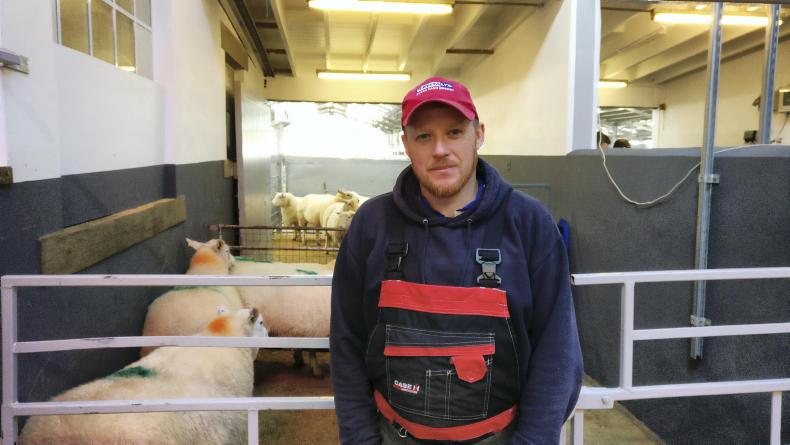Myself and my fiancé are purporting to take over the family farm. It is my family farm and my fiancé is a farmer aged 34. He is in the midst of completing the Green Cert. I am 28, but not a farmer and I have not completed the course. I am currently studying.
We are looking at going into partnership with my father for five years. To be best placed to obtain agricultural relief after this period, is my fiancé better off to go into partnership with my father on his own and have the land signed over to him (if my father is willing to do this). Does the fact that he is not a blood relative make a difference when it comes to claiming agricultural relief? Or are we better going into partnership with my father and have the land signed over to both of us? If we go into partnership together, does him having completed the course cover us both? We will be married by then obviously. It is bothering me a lot as I am wondering if I need to do the Green Cert?
Mary
Let’s cross off the easy answers first. The fact that your finance is not a blood relative does not make a difference when it come to claiming agricultural relief. It does when you look at the thresholds for gift and inheritance. Agricultural relief applies provided the beneficiary qualifies as a farmer. This is satisfied if, on the valuation date, the beneficiary’s agricultural property comprises 80% of the beneficiary’s total property at the valuation date. You have not said how many acres but as you implied that your fiancé will be in partnership and farming full-time, I am assuming there is, say, 100 acres at a value of €10,000.
Agricultural relief will reduce the value of the farm by 90% – from €1m to €100,000. To qualify as a farmer (the 80% rule), his agricultural assets would have to be less than €200,000. As your fiancé is not related by blood, his threshold is just €15,075 from your father. So it means that even after agricultural relief €84,925 is exposed to capital gains tax of 33%, you are left with a bill of €28,026. If it was transferred to you, the threshold of €280,000 for children would mean there would be no tax implications.
That is one element you do not answer. Will you be working off-farm or full-time on the farm yourself? Since 2015, you must farm the land for six years to get agricultural relief and have an agricultural qualification. You must also farm the property for not less than 50% of your working time. This does not mean you cannot have an off-farm job.
You mention if your father would be willing to transfer land to your fiancé. In most cases I come across, the parents would much prefer to transfer land to their children. But I do not know how they get on. If, as you say, you will be married (and I’m sure you will), you can transfer half the land to your husband which will not attract any gift tax at that stage.
The one thing to realise is that partnerships must benefit everyone and not just for taxation reasons. It is a legal business arrangement where two or more individuals come together, combining their respective resources to achieve mutual benefits.
A written legal agreement is essential and all farming operations must be included in the agreement. One concern for farmers is land ownership and the risk involved in putting it into the partnership. In the partnership, all land, buildings and entitlements would remain your father’s until he decides to transfer.
It makes sense to become a registered farm partnership as there are advantages from both Revenue and the Department of Agriculture. The lower tax rate can be maximised by sharing the profits. Stock relief of 100% is available for new entrants under 40, while 50% stock relief is available for other partners. This can be significant if stock numbers are increasing.
The deadline for a partnership to become a registered farm partnership for the 2016 Basic Payment Scheme (BPS) is 31 March. There is also the Young Farmers Scheme top-up of 25% of the BPS and access to a 60% grant rate for young farmers. In all cases, you must have the agricultural qualification. Your fiancé having it does not cover you.
I would say your fiancé can go into partnership for five years as you plan the second element, the transfer of land most likely to yourself.
The other thing that might need to be taken into account are the new succession farm partnerships. The scheme effectively gives a farmer and their successor a tax incentive, with an annual tax credit worth up to €5,000 per annum for a five-year period, where the farmer and successor enter an approved partnership, which culminated in the transfer of at least 80% of the farm assets to the successor.
The first step is that you must be in a registered farm partnership and must apply to be included on a register of succession farm partnerships.
On the agricultural qualifications, I think the plan should include you doing them. It will give you, your fiancé and your father more options in the future.
Requirements to qualify
for agricultural relief
Must pass the farmer test.Need to have agricultural qualifications to get it.Partnerships must benefit all parties.Look at more than taxation.Being in a registered partnership gives more benefits
Myself and my fiancé are purporting to take over the family farm. It is my family farm and my fiancé is a farmer aged 34. He is in the midst of completing the Green Cert. I am 28, but not a farmer and I have not completed the course. I am currently studying.
We are looking at going into partnership with my father for five years. To be best placed to obtain agricultural relief after this period, is my fiancé better off to go into partnership with my father on his own and have the land signed over to him (if my father is willing to do this). Does the fact that he is not a blood relative make a difference when it comes to claiming agricultural relief? Or are we better going into partnership with my father and have the land signed over to both of us? If we go into partnership together, does him having completed the course cover us both? We will be married by then obviously. It is bothering me a lot as I am wondering if I need to do the Green Cert?
Mary
Let’s cross off the easy answers first. The fact that your finance is not a blood relative does not make a difference when it come to claiming agricultural relief. It does when you look at the thresholds for gift and inheritance. Agricultural relief applies provided the beneficiary qualifies as a farmer. This is satisfied if, on the valuation date, the beneficiary’s agricultural property comprises 80% of the beneficiary’s total property at the valuation date. You have not said how many acres but as you implied that your fiancé will be in partnership and farming full-time, I am assuming there is, say, 100 acres at a value of €10,000.
Agricultural relief will reduce the value of the farm by 90% – from €1m to €100,000. To qualify as a farmer (the 80% rule), his agricultural assets would have to be less than €200,000. As your fiancé is not related by blood, his threshold is just €15,075 from your father. So it means that even after agricultural relief €84,925 is exposed to capital gains tax of 33%, you are left with a bill of €28,026. If it was transferred to you, the threshold of €280,000 for children would mean there would be no tax implications.
That is one element you do not answer. Will you be working off-farm or full-time on the farm yourself? Since 2015, you must farm the land for six years to get agricultural relief and have an agricultural qualification. You must also farm the property for not less than 50% of your working time. This does not mean you cannot have an off-farm job.
You mention if your father would be willing to transfer land to your fiancé. In most cases I come across, the parents would much prefer to transfer land to their children. But I do not know how they get on. If, as you say, you will be married (and I’m sure you will), you can transfer half the land to your husband which will not attract any gift tax at that stage.
The one thing to realise is that partnerships must benefit everyone and not just for taxation reasons. It is a legal business arrangement where two or more individuals come together, combining their respective resources to achieve mutual benefits.
A written legal agreement is essential and all farming operations must be included in the agreement. One concern for farmers is land ownership and the risk involved in putting it into the partnership. In the partnership, all land, buildings and entitlements would remain your father’s until he decides to transfer.
It makes sense to become a registered farm partnership as there are advantages from both Revenue and the Department of Agriculture. The lower tax rate can be maximised by sharing the profits. Stock relief of 100% is available for new entrants under 40, while 50% stock relief is available for other partners. This can be significant if stock numbers are increasing.
The deadline for a partnership to become a registered farm partnership for the 2016 Basic Payment Scheme (BPS) is 31 March. There is also the Young Farmers Scheme top-up of 25% of the BPS and access to a 60% grant rate for young farmers. In all cases, you must have the agricultural qualification. Your fiancé having it does not cover you.
I would say your fiancé can go into partnership for five years as you plan the second element, the transfer of land most likely to yourself.
The other thing that might need to be taken into account are the new succession farm partnerships. The scheme effectively gives a farmer and their successor a tax incentive, with an annual tax credit worth up to €5,000 per annum for a five-year period, where the farmer and successor enter an approved partnership, which culminated in the transfer of at least 80% of the farm assets to the successor.
The first step is that you must be in a registered farm partnership and must apply to be included on a register of succession farm partnerships.
On the agricultural qualifications, I think the plan should include you doing them. It will give you, your fiancé and your father more options in the future.
Requirements to qualify
for agricultural relief
Must pass the farmer test.Need to have agricultural qualifications to get it.Partnerships must benefit all parties.Look at more than taxation.Being in a registered partnership gives more benefits 









SHARING OPTIONS